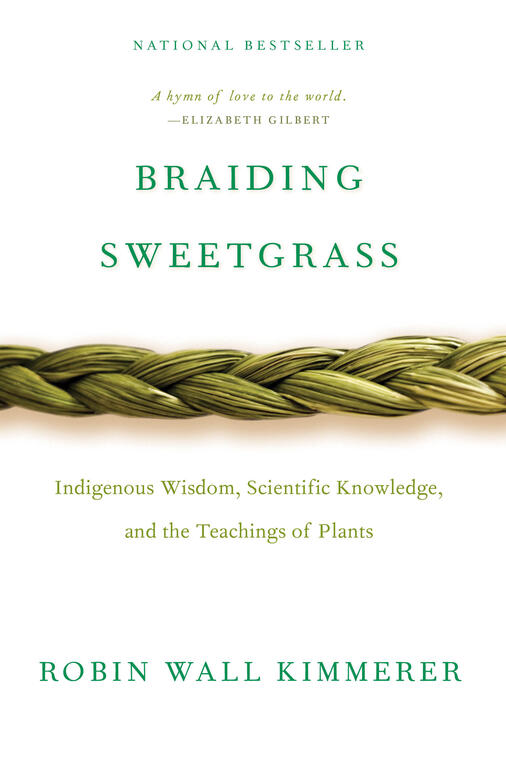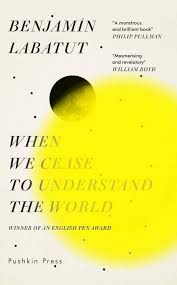Who says only librarians and ELA teachers can provide book recommendations?! As a veteran science teacher, I’m excited to share 10 of my favorite science-centered books for you to dive into this break. Whether you’re a fellow science educator, a curious learner, or simply someone who loves science, these books offer a perfect blend of information, interest, and, depending on the book, the perfectly curated “ick factor”.
1. Entangled Life: How Fungi Make Our Worlds, Change our Minds & Shape Our Future (Merlin Sheldrake)
Sheldrake takes readers on a journey through the intricate networks of fungal life, revealing how fungi influence everything from climate change and food production to our mental health and the very structure of life itself.

2. Slime: How Algae Created Us, Plague Us, and Just Might Save Us (Ruth Kassinger)
Slime highlights algae’s complex relationship with humanity—both as a source of wonder and a cause of concern. The book reveals how these microscopic organisms continue to shape our past, present, and future in surprising ways.

3. Stiff: The Curious Life of Human Cadavers (Mary Roach)
A look at the scientific, historical, and ethical dimensions of cadavers, from their use in medical research and crash-test experiments to their role in forensic science and anatomical study. Stiff uncovers the surprising ways human remains have contributed to science, offering a unique perspective on life, death, and the body.

4. I Contain Multitudes: The Microbes Within Us and a Grander View of Life (Ed Yong)
Yong reveals how these tiny organisms (bacteria, viruses, fungi, and others) are essential to our health, behavior, and even evolution. The book shows that humans are not isolated beings, but complex ecosystems cohabiting with trillions of microbes that shape our existence in profound and often surprising ways.

5. Braiding Sweetgrass: Indigenous Wisdom, Scientific Knowledge and the Teachings of Plants (Robin Wall Kimmerer)
A unique exploration of the relationships between humans, nature, and the land. Through lyrical essays, Kimmerer blends indigenous knowledge with scientific understanding, highlighting the deep wisdom that plants and the natural world can offer. The book invites a sense of gratitude, reciprocity, and respect for the plants and ecosystems that sustain us.
Looking for ways to incorporate ideas from this text into your curriculum? Our course, Beyond the Book: Creating a Comprehensive Unit for Braiding Sweetgrass, will help you identify themes within the text, explore supplemental resources, and design an instructional unit for Braiding Sweetgrass.

6. The Hidden Life of Trees: What They Fell, How the Communicate (Peter Wohlleben)
Wohlleben explores how trees interact with one another through underground networks, share resources, and even warn each other of impending threats.

7. Seven Brief Lessons on Physics (Carlo Rovelli)
Through seven short chapters, Rovelli explores topics such as the nature of time, quantum mechanics, relativity, and the mysteries of the universe, presenting them in a way that is both poetic and intellectually stimulating.

8. Off the Edge: Flat Earthers, Conspiracy Culture, and Why People Will Believe Anything (Kelly Weill)
Kelly Weill delves into the psychology and social dynamics behind the modern flat Earth movement and the rise of conspiracy theories. Weill examines how and why people become drawn to fringe beliefs, exploring the internet’s role in amplifying such ideologies and the communities that form around them.

9. The Loop: How Technology is Creating a World Without Choices (Jacob Ward)
Explores how AI and algorithms increasingly influence human behavior, exploiting cognitive biases to nudge decisions and shape actions subtly. Ward argues that these technologies erode individual autonomy, creating “loops” of predictable behavior while reinforcing echo chambers and narrowing perspectives.

10. When We Cease to Understand the World (Benjamin Labatut)
Through vivid narratives of figures like Werner Heisenberg and Erwin Schrödinger, the book grapples with the moral, psychological, and existential costs of knowledge, highlighting how these discoveries reshape both the world and the people who uncover them.

11. Will My Cat Eat My Eyeballs? Big Questions from Tiny Mortals About Death (Caitlin Doughty)
Through vivid narratives of figures like Werner Heisenberg and Erwin Schrödinger, the book grapples with the moral, psychological, and existential costs of knowledge, highlighting how these discoveries reshape both the world and the people who uncover them.
Whether you’re seeking to explore the cosmos, learn about the intricate workings of nature, or dig into the ethical dilemmas of scientific progress, there’s a book on this list waiting to ignite your curiosity! So grab a blanket, a warm beverage, and cozy up with the wonders of science!
Looking for more books for you or your students? Check out these blogs by the writers (and readers!) at Teaching Channel:
- “A Teacher’s Guide to Award Winning Children’s and Young Adult Books 2023”
- “Best Books for Teachers to Add to Your Summer Reading List”
- “The Importance of Teaching Banned Books”
- “Braiding Indigenous Stories and Science”
- “Create a Curated Book List to Celebrate Gender Diversity”
- “Spark an Interest in the Environment with Eco-Fiction!”
About the Author

Amy Szczepanski (she/her) is a Professional Learning Specialist at Teaching Channel. She holds a B.S. in both Biology and Environmental Science, a Master’s in Teaching, and has been teaching since 2014. Amy uses her experience to create highly engaging and effective content for both teachers and students. She loves all things STEM and is passionate about teacher advocacy.
Fun fact: Amy’s favorite hobby is taking long walks through New York City searching for delicious treats.
The post 11 Science-Centered Books to Get Cozy With appeared first on Teaching Channel.


